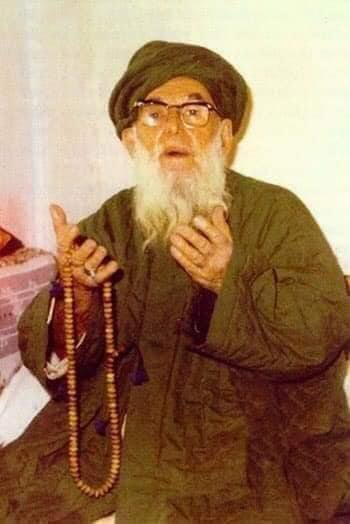Sometimes, because of circumstances, many individuals are pushed into positions of religious leadership. Occasionally this is the wish of their parents, and at other times, it is their own doings. It appears, just from a very casual assessment of many of the products of Islamic educational institutions, here and elsewhere, that these individuals have no idea of the massive responsibility that they place on their shoulders. They speak on behalf of Islam, or so they say, and large numbers of people are swayed by what they preach. If I have my facts right correct, I remember reading somewhere, that when Sayyiduna Ali (r.a.) came to Iraq, he stopped most of the clerics from delivering public talks. One of those he allowed to talk was Hasan al Basri (r.a.) one of the greatest spiritual figures of Islam of all time. I do not know what Sayyiduna Ali (r.a.) would have done if he had to come to South Africa and listened to the large numbers of “disasters” providing religious leadership in some of our mosques and madrassahs. If I must enumerate all the nonsense I have heard, and although my knowledge of Islam is very limited, I would be able to fill so many pages.
On one occasion in Lefke in Cyprus, Mawlana Shaykh Nazim spoke about rijalullah or men of Allah (ﷻ). He was saying that those in charge of our affairs should be men of Allah (ﷻ). In today’s world, especially in those parts where many people are financially comfortable, it is extremely difficult for clerics to have their focus solely on their Creator. You see, for an individual to have his concentration solely on his Creator, is extremely difficult, because of all the family and social factors that impinge upon him. Those who are primarily concerned with their Lord in their variety of religious activities face a barrage of factors that drive him away from his standpoint. If a person wants to dedicate his life to Islam and everything that goes with that, then he must be prepared to accept poverty and the variety of tribulations that will come his way. One cannot say: “O my Lord I am solely for Thee”, and then there is a desire for monetary gain in whatever one does.
I remember a time in our community when many of the religious leaders were poor people living on family and community hand-outs. But many of them tried very hard to conduct their religious affairs for Allah’s (ﷻ) sake. Today the situation is very different. Religion, if properly exploited, can bring in a tidy sum every month for one. And so the monetary gain slowly takes over what might have originally been work for Allah’s (ﷻ) sake. Today it is almost impossible to get any cleric to work in the poor areas. These people, instead of being men of Allah (ﷻ), have become men of the Dunya. And in many cases, the opposition to Tasawwuf is because in Tasawwuf they see the path that they should have been walking. I am not saying that those in charge of our affairs should not have their financial needs seen to. It is the duty of the community to see to it that these people are well provided for. I am not talking about that. I am talking about a state of mind in which a person’s love for his Lord and sacrifice for the community for the sake of his Lord take precedence. To him, it is the satisfaction of his Lord that he strives for. But things are no more like that. I cringe when I think of the financial demands made from people for religious services rendered. There is not a single verse in the Qur’an that supports this or a single practice from the Prophetic Traditions in which the Holy Prophet (ﷺ) asked for remuneration for religious service he (ﷺ) rendered. So it is definitely not part of the Sunnah. To charge people for religious service is in fact an innovation in Islam and those who do this are some of the most publically-outspoken opponents of innovations.
I have had the good fortune to have met men of Allah (ﷻ). On a day-to-day basis, they engage their Lord, as we say and participate in a variety of forms of worship where the spiritual progress of themselves, their family and their community is foremost in their minds. Their work for the community is in fact a kind of self-sacrifice, which has nothing to do with remuneration but everything to do with obtaining Divine Satisfaction. These are very special people. It appears also to me that in many cases these people have been chosen by their Lord for special graces, because they are so special by Him; men and women of Allah (ﷻ). Today, when we examine the religious leadership of Muslims throughout the world, we have to ask: “What has gone wrong? Where are those people, the pious ones in the community who when what they do, or when they act or when they speak, have their Lord in mind?” For those of us who are striving on the path of Tariqah, this is extremely difficult but it is an attribute of those whose concern is raising the banner of Islam. In our experiences in the areas in which we work, we come across men and women who work unselfishly for Islam. They have no concern for their own comforts or their own family or social benefits. It is amazing how the name “Allah” comes on their tongues. In continuous informal dhikr and at other times in formal dhikr, they remember their Lord. They are the true men and women of Allah (ﷻ); chosen by Him to do His Work in this post-prophetic period. There are so few of them; just a handful distributed among thousands of other Muslims. I sometimes say that they are in their own small ways also “revivers of Islam”. Wherever they live, they raise the banner of Islam for Allah’s (ﷻ) sake, and try to spread His Message. Their concern is never monetary gain or public acclaim or whatever the case might be. We ask Almighty Allah (ﷻ) not to remove them from our communities, because of what the community does, but to strengthen them in their work and also to make us like them; Allah’s (ﷻ) servants on this planet, amin.
[Letters to Seekers on the Spiritual Path Vol 2 – Unpublished 2012]


